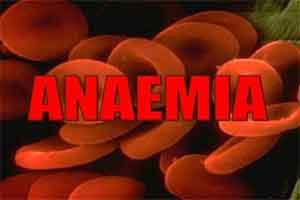- Home
- Medical news & Guidelines
- Anesthesiology
- Cardiology and CTVS
- Critical Care
- Dentistry
- Dermatology
- Diabetes and Endocrinology
- ENT
- Gastroenterology
- Medicine
- Nephrology
- Neurology
- Obstretics-Gynaecology
- Oncology
- Ophthalmology
- Orthopaedics
- Pediatrics-Neonatology
- Psychiatry
- Pulmonology
- Radiology
- Surgery
- Urology
- Laboratory Medicine
- Diet
- Nursing
- Paramedical
- Physiotherapy
- Health news
- Fact Check
- Bone Health Fact Check
- Brain Health Fact Check
- Cancer Related Fact Check
- Child Care Fact Check
- Dental and oral health fact check
- Diabetes and metabolic health fact check
- Diet and Nutrition Fact Check
- Eye and ENT Care Fact Check
- Fitness fact check
- Gut health fact check
- Heart health fact check
- Kidney health fact check
- Medical education fact check
- Men's health fact check
- Respiratory fact check
- Skin and hair care fact check
- Vaccine and Immunization fact check
- Women's health fact check
- AYUSH
- State News
- Andaman and Nicobar Islands
- Andhra Pradesh
- Arunachal Pradesh
- Assam
- Bihar
- Chandigarh
- Chattisgarh
- Dadra and Nagar Haveli
- Daman and Diu
- Delhi
- Goa
- Gujarat
- Haryana
- Himachal Pradesh
- Jammu & Kashmir
- Jharkhand
- Karnataka
- Kerala
- Ladakh
- Lakshadweep
- Madhya Pradesh
- Maharashtra
- Manipur
- Meghalaya
- Mizoram
- Nagaland
- Odisha
- Puducherry
- Punjab
- Rajasthan
- Sikkim
- Tamil Nadu
- Telangana
- Tripura
- Uttar Pradesh
- Uttrakhand
- West Bengal
- Medical Education
- Industry
Controlling Chronic Anaemia in Women

According to National Family Health Survey (NFHS)–IV (2015-16), the prevalence of anemia among women aged 15 to 49 years is 53 percent. In order to prevent anaemia among women and children, National Iron Plus Initiative (NIPI) has been launched in 2013, a flagship scheme under the National Health Mission based on the life-cycle approach, under which iron-folic acid supplementation is provided to the vulnerable age groups. It includes Pregnant and lactating women and Women in reproductive age (WRA) group.
Measures taken by Government to ensure optimum nutritional requirements for women are:
• Universal screening of pregnant women for anaemia is a part of ante-natal care and all pregnant women are to be provided iron and folic acid tablets during their ante-natal and post natal visits through the existing network of sub-centers and primary health centres and other health facilities as well as through outreach activities at Village Health & Nutrition Days (VHNDs) and also through the ASHAs. After the first trimester of pregnancy, every pregnant woman during ANC is to be given iron and folic acid (IFA) tablets for six months, and six months post-partum. Pregnant women, who are found to be clinically anaemic, are to be given double the dose of IFA.
• Government of India has given directions to the States for identification and tracking of severely anaemic cases at all the sub centres and PHCs for their timely management.
• Health and nutrition education to promote dietary diversification, inclusion of iron foliate rich food as well as food items that promote iron absorption.
• To address anaemia due to worm infestation, deworming of pregnant women is done after first trimester preferably in second trimester of pregnancy.
• To tackle the problem of anemia due to malaria particularly in pregnant women and children, Long Lasting Insecticide Nets (LLINs) and Insecticide Treated Bed Nets (ITBNs) are being distributed in endemic areas.


